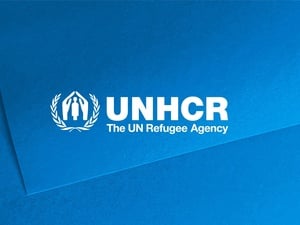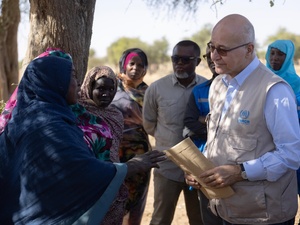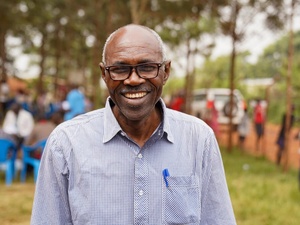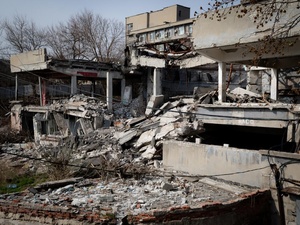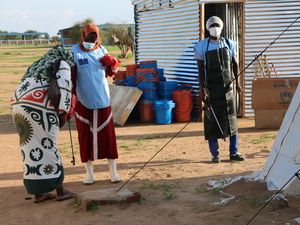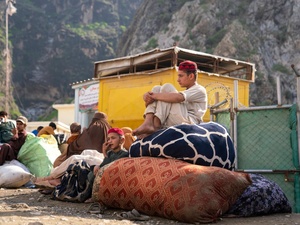Nicaraguan refugees in Costa Rica face renewed uncertainty amid cuts to support
Nicaraguan refugees in Costa Rica face renewed uncertainty amid cuts to support
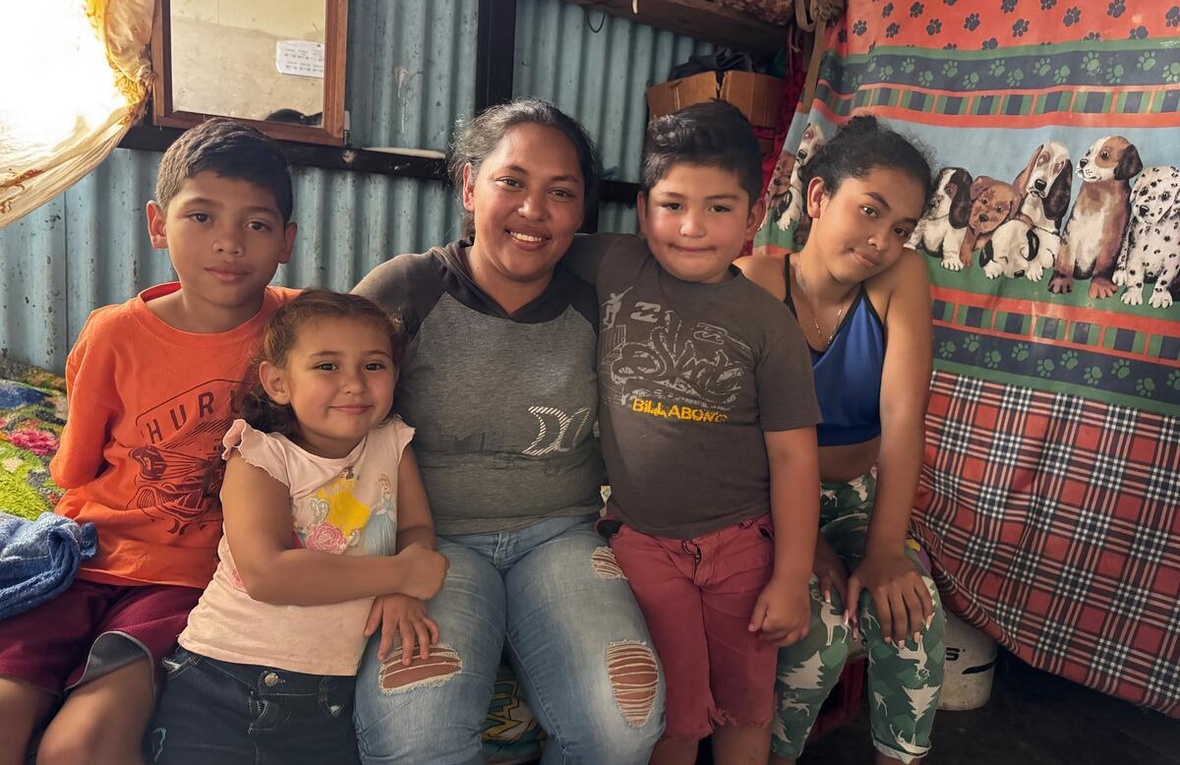
Lillian and her four children at their home in Cartago, Costa Rica.
It’s raining, and the zinc roof of Lillian’s small wooden home echoes loudly, but the laughter of her four children fills the space. Although the house is precarious, it has become a refuge for the Nicaraguan refugee and her family.
Lillian, 33, fled Nicaragua six years ago with her husband and children. Nationwide protests had been met by the authorities with violent repression. Roadblocks brought the country to a halt, and attacks on civilians escalated. “Two people were shot near us as we were running from our home,” Lillian recalls.
She and her family crossed the border into Costa Rica on foot, uncertain of what they would find there.
Costa Rica — a country of just 5.1 million — now hosts more than 194,000 Nicaraguan asylum-seekers and 9,216 recognized Nicaraguan refugees, over half of all Nicaraguan refugees and asylum-seekers globally.
A helping hand
Once in Costa Rica, Lillian was welcomed by her local community in the city of Cartago, southeast of San José. A teacher helped her take the first steps toward settling her family in a new place, and her neighbours became an important source of support. Still, the challenges were immense.
It was not until late 2024, through a friend, that she learned about UNHCR, the UN Refugee Agency, which supports Nicaraguan refugees and asylum-seekers in Costa Rica with getting legal documentation, finding livelihoods, and accessing essential services.
Together with her husband, she visited the UNHCR offices, seeking guidance on the endless questions that weighed on their minds: how to navigate legal procedures, how to take advantage of training opportunities, how to build a more stable future for their children. Over the next four months, they received financial assistance that supplemented the small amount Lillian’s husband earned from temporary construction, restaurant and cleaning jobs, and helped them pay the rent, buy food, and keep their children in school.
“It wasn’t just the money — it was how they treated us. I felt seen and heard,” says Lillian.
But in early 2025, that support ended abruptly as global funding shortfalls resulted in UNHCR´s budget in Costa Rica being slashed by almost 41 per cent. Legal aid, livelihood programmes, and the financial support that Lillian and her family had been receiving were immediately suspended. Five UNHCR local partners were also forced to close their operations, leaving thousands of asylum-seekers and refugees without protection.
Lifeline in jeopardy
With rent, food, and utility bills reaching $400 a month, and school-related costs piling up, Lillian is once again worried about the future. “My 11-year-old wants to be a professional. He was born in Nicaragua, but he’s grown up here. He doesn’t want to go back, and neither do I. Here, we had learned to live without fear.”
In recent years, with help from UNHCR and its partners, thousands of displaced families in Costa Rica have been able to rebuild their lives through access to legal support, education, mental health care, and job training. Since 2019, more than 36,500 people have benefited from financial assistance. But today, the suspension or drastic reduction of many programmes has left those most in need – particularly in remote or high-risk areas – without critical support.
Meanwhile, the situation in Nicaragua continues to deteriorate, with people fleeing into Costa Rica daily.
“Costa Rica has responded with dignity and commitment, but as needs increase, resources are decreasing and that has a devastating human impact: girls, boys, women, and men trying to rebuild their lives here are being left without support,” warns Andrés Celis, UNHCR Representative in Costa Rica.
Lillian dreams of one day owing a small piece of land where she can build a permanent home for her family. She wants to see her children graduate and thrive. For now, she leans on her community, but she knows others are less fortunate. “Not everyone has neighbours like mine or someone to guide them,” she says. “That’s why I’m speaking out. Just like I received support, others deserve the same chance.”


